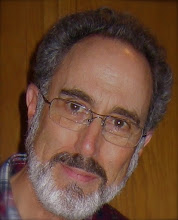
Daniel Conte lies in a hospital bed at Landstuhl Army Hospital, Germany, after having barely survived a fierce gun battle with the terrorists who possessed the plutonium pit stolen from a Russian weapons lab. An IV drip dispenses a pain killer whenever Conte presses the little red button at his hand.
As Conte pressed his little button his mushy mind called up to semi-consciousness images of those last days in Tehran in 1979. The disenfranchised poor pouring out of their hovels to join marauding students stampeding down Kourosh-e-Kabir street and swarming over the walls of the British Embassy to smash windows and set buildings aflame. Huge columns of grey-black smoke boiling up into Tehran’s cerulean blue sky. Army tanks and APCs rumbling through the streets. Army troops, APCs, and gun emplacements at the corners of Shahyad Square. And incongruously, the scent of roses in the greenhouse at the US Embassy where Conte said a hurried goodbye to Taraneh.
Conte remembered her pulling him back to kiss again as he turned to go. He would never forget the look in her eyes. She knew what he would not let himself even consider. He wondered now at his naïve belief that the small parcel of US territory called an embassy, surrounded by a nation gone mad, would ever be an island of safety.
%%%%%
In Chapter 21 of my novel, The Lion and the Sun, I mention Doshantapi Air Base, Tehran, a main base of the Royal Iranian Air Force (RIAF) and, in the novel, the launching point for the novel’s protagonist, Daniel Conte, in the last leg of his mission to recover the missing Russian plutonium pit. The primary action in the novel takes place in 1994, but Conte was in Tehran in 1978-79 and his return brings back troubling memories.
I spent five weeks in Tehran beginning October 2, 1978. Martial law had been declared in Iran the previous month due to strikes, violent demonstrations, and riots.
I was in Iran with three other Air Force officers assigned temporary duty with the Military Assistance Advisory Group (MAAG). We were placed in temporary billets at a decrepit apartment building in downtown Tehran that had been reserved for US personnel supporting the RIAF.  The apartment building was surrounded by a frail-looking barbed wire fence that would’ve provided little obstacle to the rioters, had they gained knowledge of our existence and decided to come in for a discussion of US support of Shah Reza Pahlavi.
The apartment building was surrounded by a frail-looking barbed wire fence that would’ve provided little obstacle to the rioters, had they gained knowledge of our existence and decided to come in for a discussion of US support of Shah Reza Pahlavi.
The entry to the building was guarded haphazardly by two Iranian soldiers. Each carried a matt black, pistol grip Uzi, which they slung around casually by a strap hung over their shoulder. They spent most of their time in a tiny guardhouse at the gate, where they drank tea and played checkers. They seemed to pay no attention to us as we entered or left the building. Our attempts at friendly greetings were met with sullen nods of the head. Every night we heard gunfire in the streets.
We were bussed to and from Doshantapi and often met armored personnel carriers patrolling the streets. We had two guards aboard the bus; conscripts with rifles across their laps, often pointed at one of us across the aisle. We were prohibited from carrying weapons.






